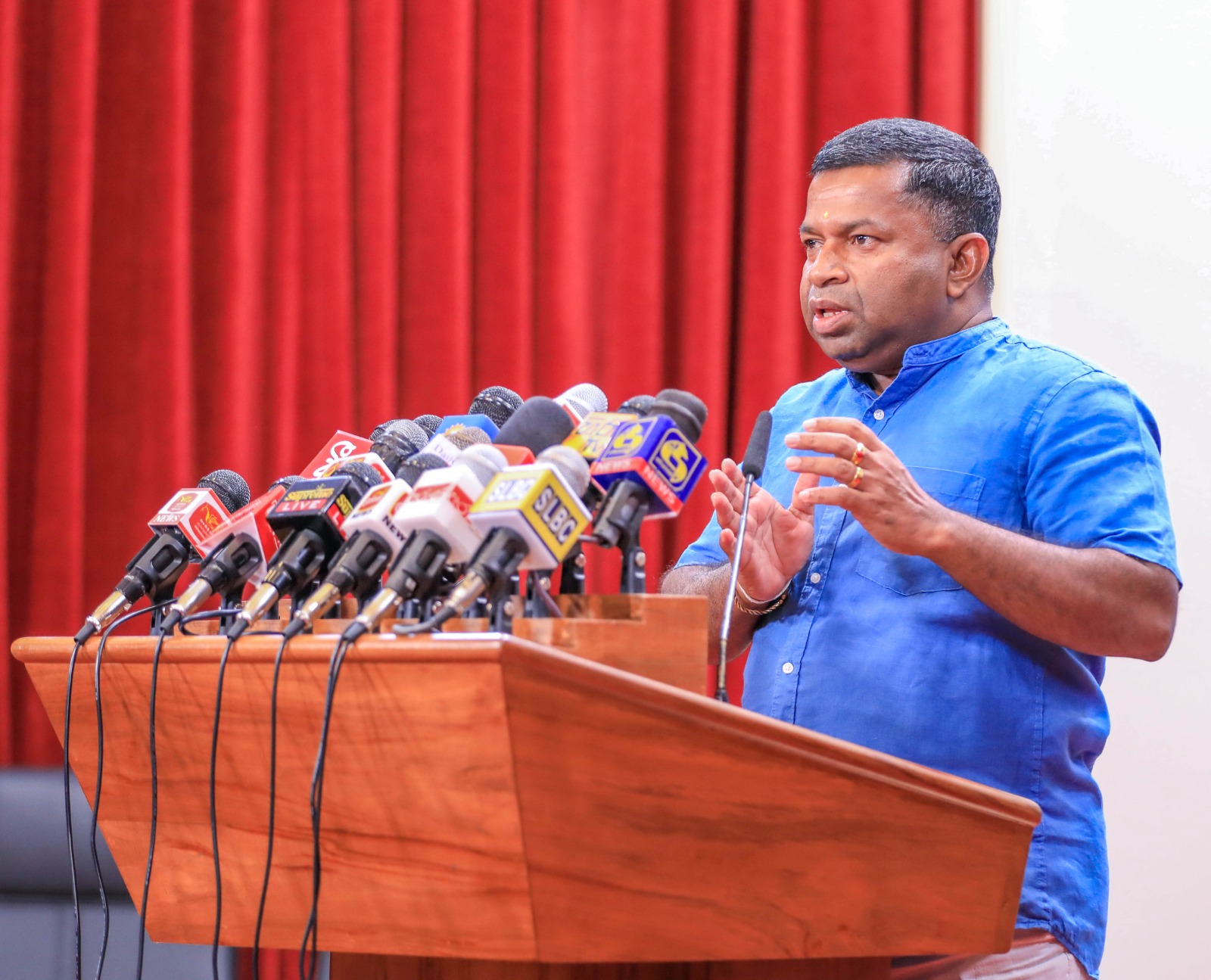China has expressed interest in investing in Sri Lanka’s Northern and Eastern provinces, but any development in strategic port district of Trincomalee has to be done in consensus with India in line with the 13th Amendment of the island nation constitution, State Minister of Rural Road Development Sivanesthurai Santhirakanthan said.
Sri Lanka’s Northern and Eastern provinces are close to South Indian Tamil Nadu state and India has continuously raised security concerns over China’s increased activities in the both ethnic minority Tamils-led provinces, which has more cultural similarities to Tamil Nadu.
Santhirakanthan, an elected legislator from the Eastern district of Batticaloa, said any development in Trincomalee port, oil tank farm, and their surrounding area should happen with the consensus of Delhi government.
“The main international attraction is Trincomalee district. According to the international accord 13th amendment, the development of Trincomalee should happen in consensus with India,” Santhirakanthan told a media briefing in Colombo referring to a Sri Lankan constitutional amendment for devolution of the power of the central government to the provinces that has been opposed by ethnic majority Sinhalese.
India has been eying on Trincomalee port since late 1970s and Indian leaders were critical of former Sri Lankan president J R Jayawardena, an uncle of current President Ranil Wickremesinghe, for his moves seen as giving the strategic Trincomalee port for a US military base during that era.
Trincomalee is one of the mineral resource richest districts in Sri Lanka, A best-known mineral sand deposit is in the northern part of Trincomalee. The major minerals found in this deposit are Ilmenite and Rutile. Other associated minerals are Zircon, Monazite, Garnet, Sillimanite, and a few other heavy minerals, Sri Lanka’s Export Development Board data show.
Many Indian projects have been moving at a slower pace amid geopolitical worries of increasing Chinese-funded infrastructure projects and investment into Sri Lanka.
“Trincomalee is a sentimental issue, and it is a law as well,” Santhirakanthan said, referring to the Indian foothold in Trincomalee district.
“But there is an opportunity for anybody to come and help in investment. Specially in seafood related products like fish and crab farming, mainly (companies from) European countries and Australia have visited the east. Anybody interested can invest. Our aim is to increase production and reduce poverty among the people.”
India has repeatedly raised concerns over Chinese investments and bilateral activities coming into both Northern and Eastern provinces citing security threat to the Indian Ocean.
Sri Lanka, according to the 13A came into effect after an Indo-Lanka agreement in 1987, has to address any Indian security concerns in the island nation that are seen as a threat to the Indian Ocean region.
Sri Lanka was compelled to cancel three renewable energy projects in Northern Sri Lanka two years ago after India raised strong concerns.
“The Chinese government now has prioritized its development activities in the North and East and some companies have already discussed this,” Santhirakanthan said.
“Mainly, they have discussed cashew nut production in Batticaloa district. There is cashew cultivation in 2,000-acre state lands. They have not been using them (the lands) to their best capacity. If any country or company comes and helps us to develop them, that will be a great help. We will help any country who comes forward for these kinds of projects.”


